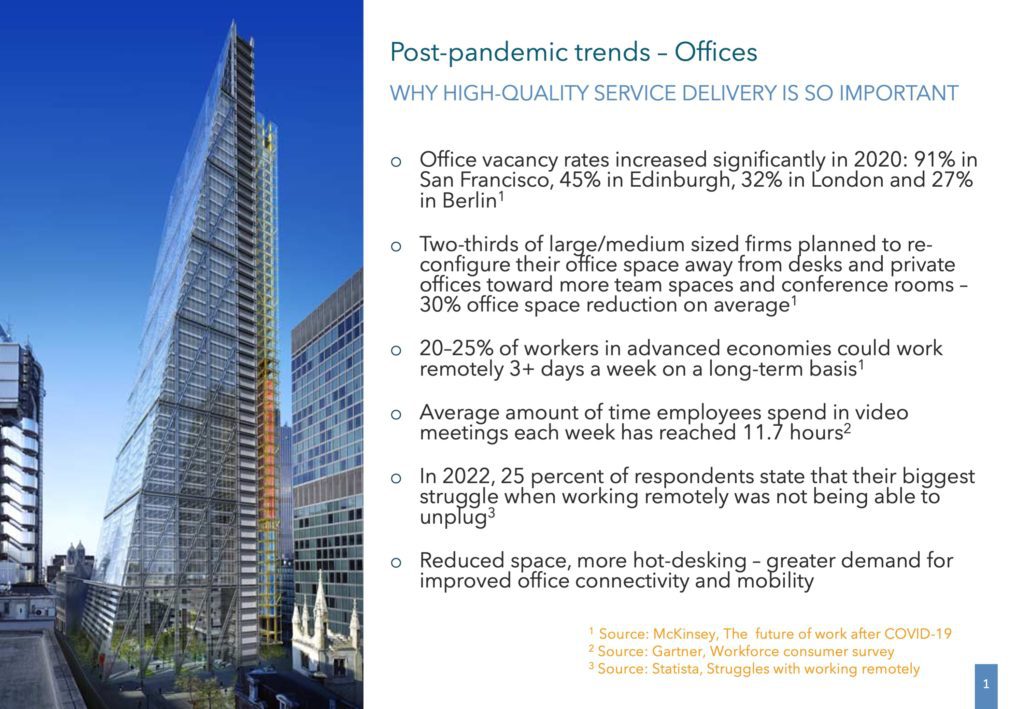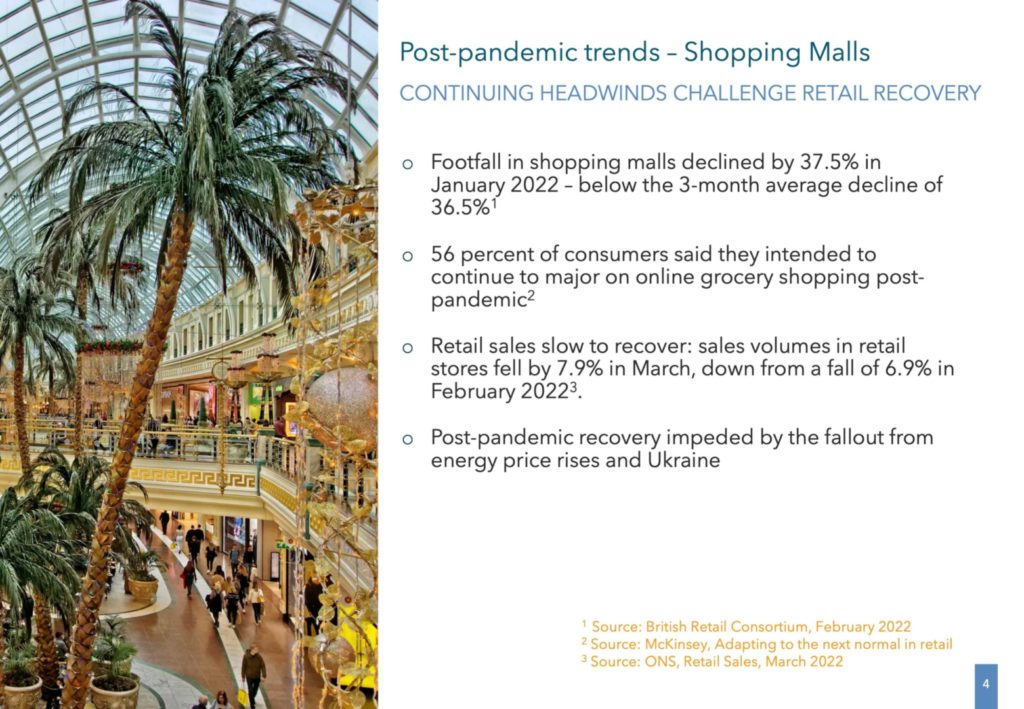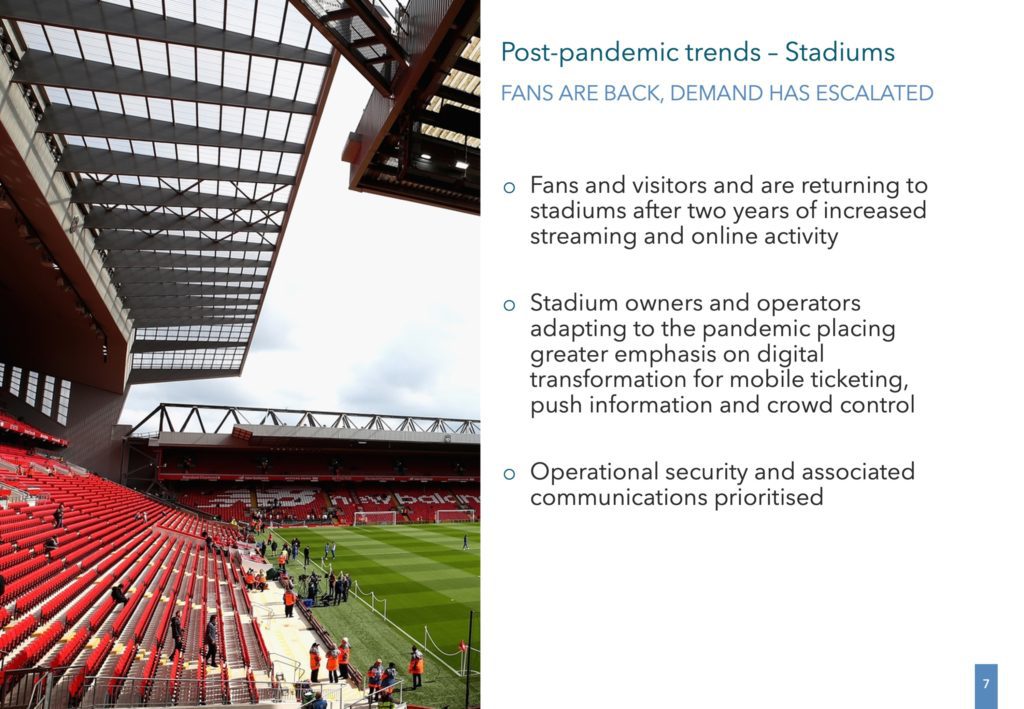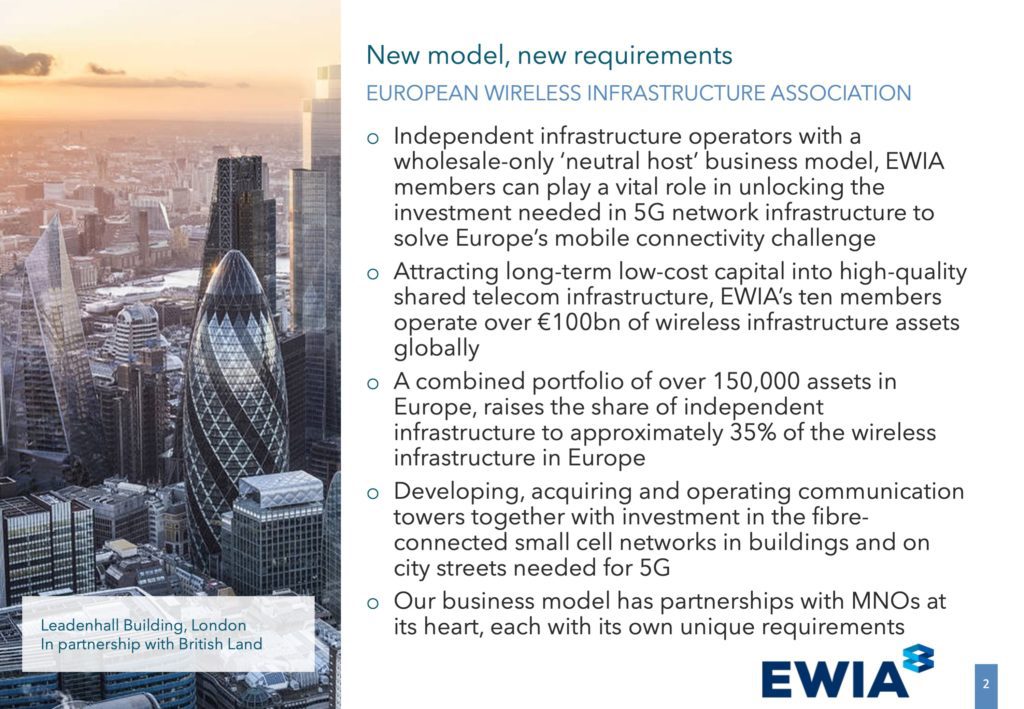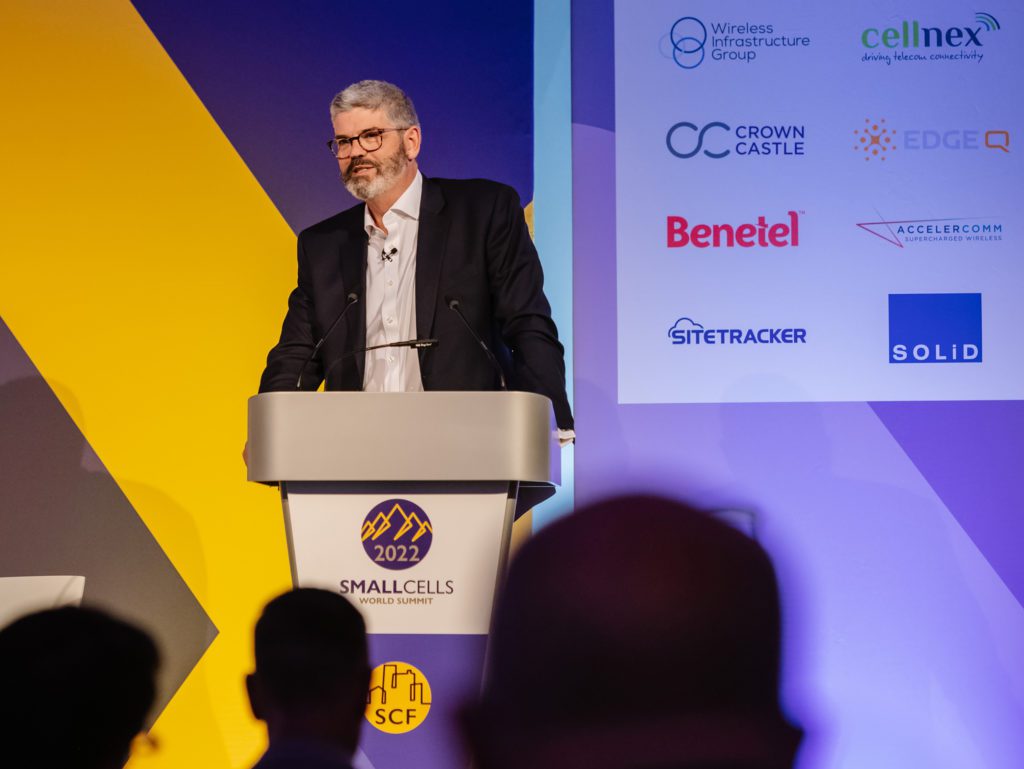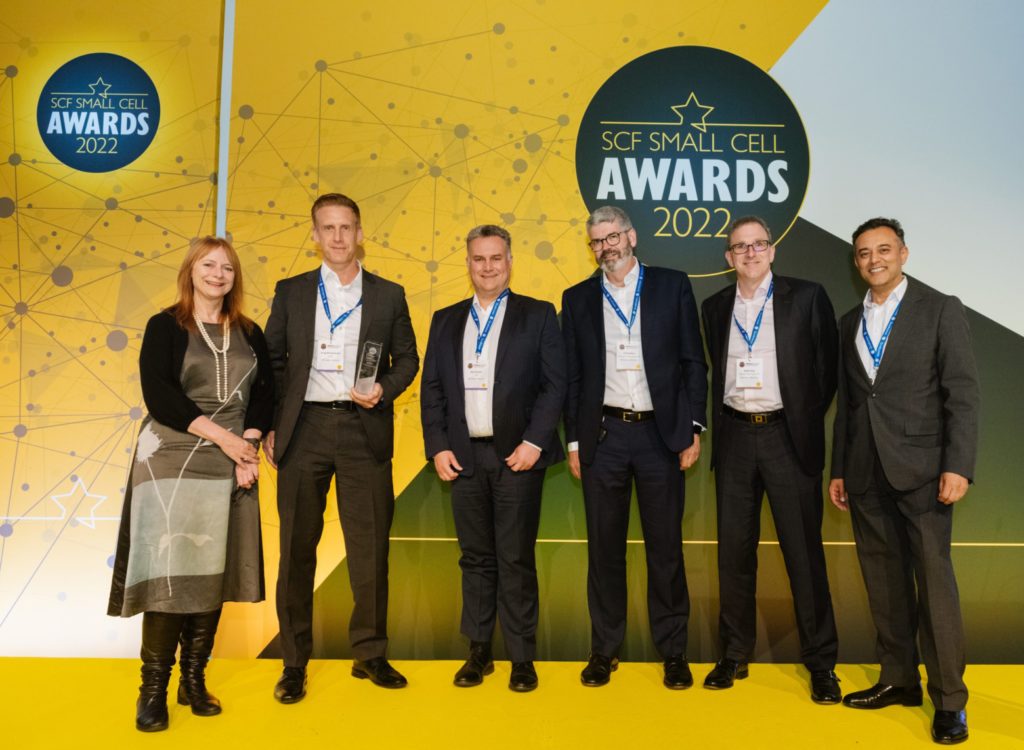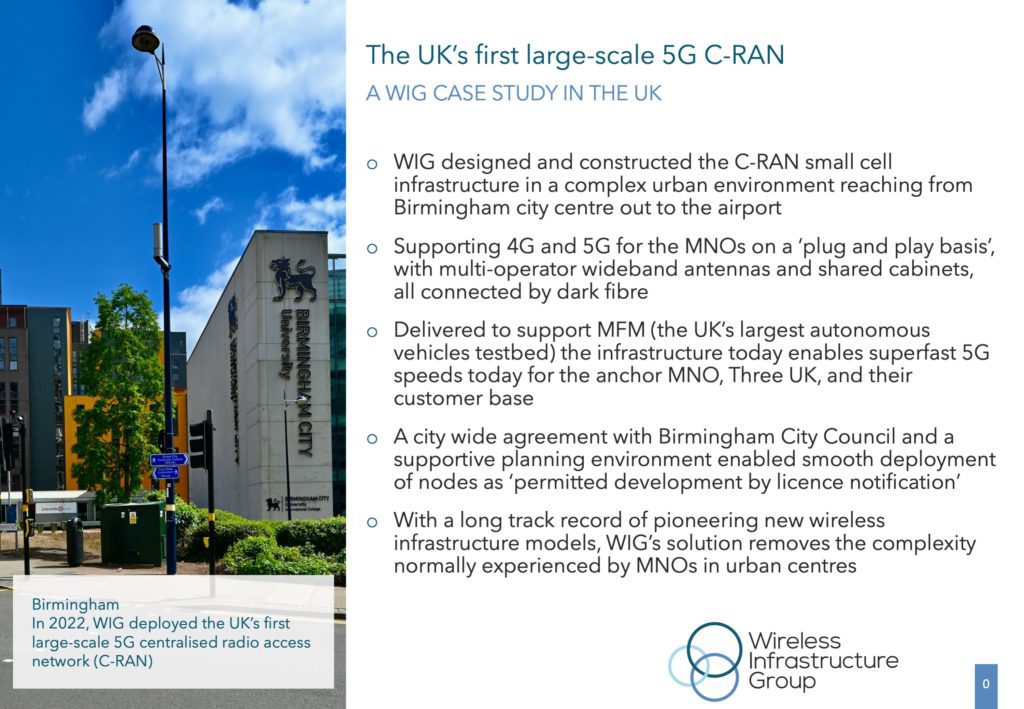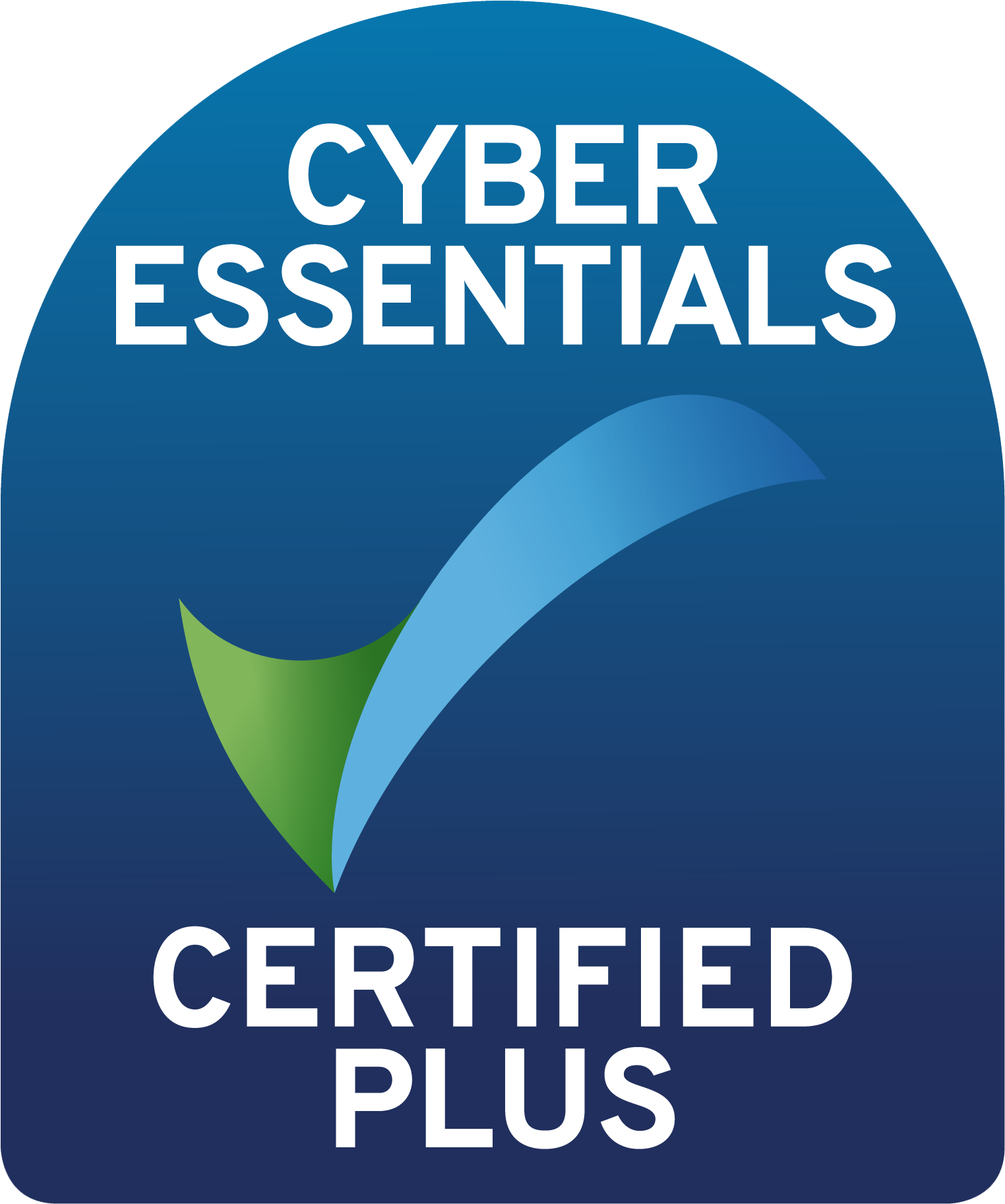It was great to be back face-to-face with customers, colleagues, and the broader wireless community at Small Cells World Summit (SCWS) in London. The annual event is run by Small Cell Forum (SCF), a trade organisation focused on ensuring infrastructure-as-a-service providers such as Wireless Infrastructure Group can help shape standards, technology roadmaps and policy decisions that best support our industry and customers.
In fact, we joined the SCF Executive Board last year because we felt that, with our deep and varied infrastructure deployment experience and close partnerships with businesses, property owners and mobile network operators (MNOs), we were able to bring unique insights to help shape future policies and direction.
At many conferences, it can often feel like our industry is talking to itself. We thought it was important to use this event to make sure the frontline requirements of the property owners, stadiums, and municipalities we work with were showcased, allowing them to be better understood by the broader industry.
On day one, our Commercial and Business Development Director Vijay Sodiwala outlined the impact of the pandemic on commercial property, sports stadiums and retail, and the role digital transformation is playing, mitigating impacts, and supporting recovery for our clients in each of these sectors.
Vijay explained that for large property owners like Argent Kings Cross and Canary Wharf, high-quality mobile connectivity was a crucial element of the service packages required to encourage workers back to offices. He also emphasised that after months in lockdown with the ability to surf, price check, share, compare and locate, seamless and ubiquitous mobile coverage has a vital role to play in delivering an optimal retail experience for shoppers and driving footfall and dwell times for retail tenants. Vijay shared that almost half of retailers said that mobile was now their top engagement priority and that contactless payments now account for 51% of all UK transactions.
Alastair Davidson, Wireless Infrastructure Group Strategy Director, is a member of the UK5G Advisory board, and a Board member of the European Wireless Infrastructure Association (EWIA). He presented on behalf of EWIA with an overall message that while the neutral host business model enables better mobile connectivity at lower cost by capturing investment from low-cost infrastructure funds, EU deployment regulation and spectrum policy has taken little account of the evolving service provider landscape. Alastair called for policy makers to recognise the significant positive socio-economic implications of the evolving partnerships between MNOs and infrastructure-as-a-service providers.
He also urged greater efforts on behalf of the EU to ensure the transition of progressive regulation from statute to the frontline, especially at the local authority level where asset “taxes” such as business rates associated with accessing street furniture are hindering the deployment of new and innovative small cell solutions in cities.
At the Small Cell Forum Awards 2022 evening, WIG were delighted to be honoured for Excellence in commercial deployment by neutral host for our 5G C-RAN deployment in the West Midlands which is transforming mobile connectivity across the Birmingham region.
The competition in this category was extremely tough. However, SCF judges recognised our pioneering role in deploying the UK’s first large-scale 5G neutral host C-RAN network, anchored by Three UK, and delivering the best possible service experience for all its customers. Unlike many C-RAN or trial small cell rollouts our West Midland’s deployment is a fully commercial network that is immediately available to be shared by all the UK’s MNOs. This is a significant project to be implemented and it highlights the benefits of a public private small cell deployment, with the option of providing public coverage, but also private networking too.
On day two the focus shifted to private networks. As the private network model moves from the trial and testbed to commercial deployment, important challenges need to be addressed. These include spectrum availability and the lack of eco-system or products to support the 5G spectrum that has been made available. Supply chain diversity and device availability were key themes throughout this session.
Andrew King, Director of Private Networks at WIG, argued that, once again, the industry needs to focus on client needs rather than technology-led solutions. On the conference circuit, there has been a lot of interest in trialling and talking rather than forging resilient, cost-effective, and scalable solutions that directly address the needs of enterprise.
The session considered key sectors where private networks were gaining traction. These included ports, commercial real estate, and sports stadiums, all of which are key areas of focus for our business. There was a progressive discussion about how businesses can use private networks to improve their own sustainability ratings, which is something WIG has been working on in the commercial property sector.
All in all, from our perspective this was a productive conference with a packed and engaging agenda. For a more detailed account of sessions and speakers, Heavy Reading’s Gabriel Brown post SCWS blog provides a strong summary.
Please click here to access a pdf download of the SCWS presentations (on-demand audio presentations available in due course).

